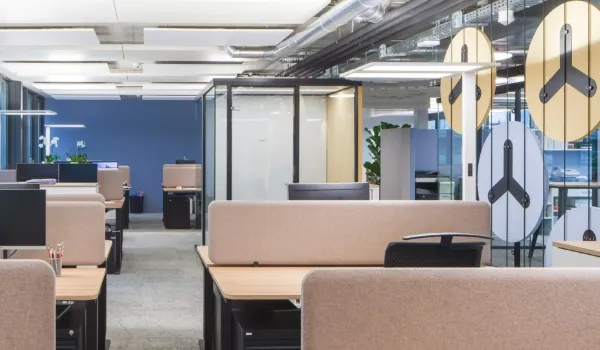Research: working from home is difficult for young employees
Research shows that employees under the age of 25 have a lot of trouble working from home. During the pandemic, there are a lot of things they miss. This includes social connectivity, health, wellbeing and the ability to progress and learn.

While many large, leading organizations don't hide their enthusiasm about working from home, research shows that working from home is far from ideal for a large demographic. Recent research on “work from home” shows that employees under the age of 25 have a lot of trouble working from home. During the pandemic and the lockdown, there are many things they miss. This includes social connectivity, health, wellbeing, and the ability to progress and learn while working. This is evident from recent research by Leesman among 160,000 employees (end of December 2020).

No special office
The scores in the Leesman research about working from home indicate that of all age groups, young people under 25 have the worst experience working from home. This is largely due to the lack of an appropriate work environment at home. As many as 72% of young people under 25 do not have a special office to work from home. This group sits at the end of their bed or uses a kitchen table where their roommates also meet by phone. In addition, they struggle with the acoustics of small, messily furnished flats.

Older people more often have suitable work space at home
The older an employee is, the more likely they are to have a suitable working environment for working from home, such as a dedicated workspace. This explains why their work experience at home is much better, as shown by their higher scores. Older people are more willing to work remotely (at home) for four or five days.
The social side of work
In any case, the social side of work is a huge challenge these days. Here too, young people under 25 are in the worst shape: only 59% feel connected to colleagues and 63% feel connected to the organization they work for while they are at home. The biggest gap, however, is the ability to work productively. Young people under 25 do this worst (77%) and people over 65 do this best (88%).
Learning from others
It's not just the lack of social contact. The need to “learn from others” is also strongly present among young people under 25. Due to the fact that they work from home a lot, they miss that more than any other age group. Those who have been with their organization for less than six months (i.e. those who started working during the pandemic) also believe that “learning from others” is more important than employees who have been employed longer.

Less chance of promotion
Young people who have to work from home have far more disadvantages than their older colleagues. This can also be read on the website of the Utrecht University. They lack role models, a network, help from colleagues and their qualities at work are less seen, so they have less chance of being promoted. Working completely from home, in particular, does not benefit young employees either, says professor of sociology at Utrecht University Tanja van der Lippe. Ultimately, she says, it could even increase labor market inequality.
The younger generation has not had the easiest start to their working career because of Corona. And now they're forced to work from their homes — in spaces that weren't designed to work — and their development may be hampered. The fact that young people under 25 have trouble succeeding in these types of work situations needs to be recognised! And this should be taken into account when furnishing the office, even after corona.
Do you want to know more about the new office environment and the multi-space approach? Then take contact with us. Our specialists are happy to help you.
Share this:
Transform your environment into the best version to work, learn or live in
Know what options are available for your situation in 30 minutes.






